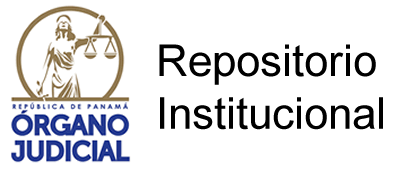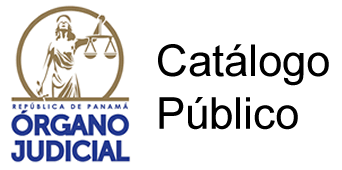Teaching english grammar : What to teach and how to teach it Jim Scrivener
Material type: TextLanguage: English Series: MacMillan books for teachersPublication details: [England] : MacMillan, 2010Edition: 1a. ediciónDescription: 288 paginas. : ilustraciones. ; 24 cmISBN: 978230723214Subject(s): ENGLISH LANGUAGE -- -- STUDY AND TEACHING FOREIGN SPEAKERS | ENGLISH LANGUAGE -- STUDY AND TEACHING -- GRAMMARDDC classification: 425.071
TextLanguage: English Series: MacMillan books for teachersPublication details: [England] : MacMillan, 2010Edition: 1a. ediciónDescription: 288 paginas. : ilustraciones. ; 24 cmISBN: 978230723214Subject(s): ENGLISH LANGUAGE -- -- STUDY AND TEACHING FOREIGN SPEAKERS | ENGLISH LANGUAGE -- STUDY AND TEACHING -- GRAMMARDDC classification: 425.071 | Item type | Current library | Collection | Call number | Copy number | Status | Date due | Barcode |
|---|---|---|---|---|---|---|---|
|
|
BIBLIOTECA CENTRAL - PANAMÁ Fondo general | Col. General | 425.071 Scr39 (Browse shelf(Opens below)) | e.1 | Available | 5967936 | |
|
|
DAVID Fondo general | Col. General | 425.071 Scr39 (Browse shelf(Opens below)) | e.2 | Available | 597604 | |
|
|
LA CHORRERA Fondo general | Col. General | 425.071 Scr39 (Browse shelf(Opens below)) | e.1 | Available | 597605 | |
|
|
LA CHORRERA Fondo general | Col. General | 425.071 Scr39 (Browse shelf(Opens below)) | e.2 | Available | 597606 | |
|
|
SANTIAGO Fondo general | Col. General | 425.071 Scr39 (Browse shelf(Opens below)) | e.1 | Available | 597607 | |
|
|
SANTIAGO Fondo general | Col. General | 425.071 Scr39 (Browse shelf(Opens below)) | e.2 | Available | 597608 |
Browsing DAVID shelves, Shelving location: Fondo general, Collection: Col. General Close shelf browser (Hides shelf browser)
| 421.52 H117 Introduction to teaching english | 421.52 L991 Communication in the language classroom | 425 C330 Techniques and resouces in teaching grammar | 425.071 Scr39 Teaching english grammar : | 428 C145 Bringing creative teaching into the young learner classroom | 428 M451 Exam classes | 428 P541 Young learners |
Contents index.
Contents.
Singular and plural.
countable and uncountable nouns.
Continers, quantities and pieces.
Subject and object pronouns.
Reflexive pronouns.
Possessives.
This, that, these, those.
Articles.
Some and any.
Much, many, a lot of, plenty of, a great deal of.
Few and a few; little and a little.
Other quantifiers.
Adjective order.
Comparatives.
Superlatives.
Comparisons: as... as, not as... as, the same as, like.
Comparisons: too and enough.
Prepositiones of place.
Prepositions of movement.
Prepositions of time.
have and have got.
Present simple: be.
Present simple: affirmative.
Presente simple: negative.
Present simple: questions.
Imperatives.
Adverbs of frecuency.
Present progressive: affirmative ("nox" meaning)
Present progressive: negative and questions.
Present progressive constrasted with present simple.
Past simple: be.
Past simple: regular verbs.
Past simple: irregular verbs.
Past simple: questions and short answers.
Past simple: negative.
Past progressive: "in progress"
Past progressive: "interrupted actions".
Present perfect: Have you ever...?
Present perfect: just.
Present perfect: "up to now".
Time words: already, yet and always.
time words: for and since.
Presente perfect progressive.
Past perfect simple.
Past perfect progressive.
Will.
Going to.
Will contrasted with going to.
Presente progressive: "futurre arrangements".
Future progressive and future perfect.
Requests, orders, offers, permission: can, could, will, would, may, might.
Ability: can, can´t, couldn´t, be able to.
Obligation and compulsion: must, have to, should, ought.
Possibility and certainty: may, might, could, must, must have, cant´t, cant´t have.
Modal verbs: an overview.
Zero conditional.
First conditional.
Third conditional.
Passives.
Causatives.
Multi-word verbs.
Direct and reported speech.
Used to.
Questions tags.
Relative pronouns and relative clauses.
Defining and non-defining relative clauses.
´d better / had better.
Two-verb structures: -ing or infinitve?
In case.
Further reading.
Teaching English Grammar is the essential handbook for teachers wanting to prepare and deliver effective grammar lessons. It combines a comprehensive grammar reference with practical teaching advice,helping teachers to both understand and present them.












There are no comments on this title.